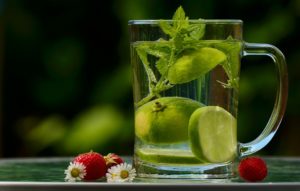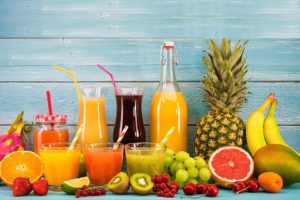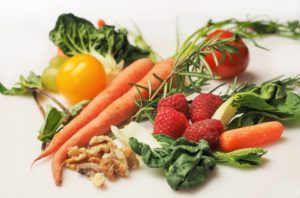How to Deal with Vegan Detox Symptoms

It is quite difficult to change one’s eating habits. The more quickly you switch to a plant-based diet, the more likely you are to suffer detox symptoms. It can happen at any point during the first month and persist for a few hours to a few weeks. So how to deal with vegan detox symptoms?
Veganism is a significant lifestyle change. All vegans have in common is their dietary restriction against animal products. Transitioning to veganism, like any big dietary shift, comes with its own set of challenges, particularly when it comes to detox symptoms and side effects.
You will most likely notice some new changes throughout the first few weeks of a vegan detox. A vegan detox is effective and exposes a lot about how our food affects us.
Veganism is the detox we all need in our lives, whether it is a three-day vegan cleanse or a lifelong vegan cleanse.
The Best Choices Can Still Come With Health Challenges
Most people are aware of the dangerous compounds included in today’s meat, with growth hormones and antibiotics. Sugar, wheat, and dairy products are examples of processed and refined meals that include a variety of dangerous ingredients.
Despite the detrimental consequences of meat, sugar, and fat, the body develops acclimated to them over time. It is no wonder that so many individuals are switching to veganism. However, the best choices can still come with health challenges.
When you move to a plant-based diet, your body begins to flush out toxins that have built up over time, which takes a lot of effort. As a result of the body’s desires for the previous food, vegan detox symptoms such as weariness, headaches, and dizziness can arise.
The good news is that there are solutions to overcome these desires while also smoothing out the bumps in the road.
How to Deal With Detox Emotions
One element that is sometimes ignored when making nutritional adjustments is the impact it might have on your emotional state.
This is especially important when detoxing. Since in addition to coping with bodily discomfort, you will likely be tested in new and unusual ways for which you may not be sufficiently prepared.
A big part of our identity is determined by how we eat and what happens when we abruptly stop eating certain meals, as well as our social and cultural links to certain foods.
Most of us are unaware of how much we rely on food to alter our emotional state daily. When this is removed, we are forced to confront feelings that may have been suppressed for years.
Additionally, we never let these feelings emerge, and we automatically grab food to make us feel better at the first sign of pain.
On a more positive note, I can assure you that emotional detox is just temporary and is caused by the gut and brain link. In reality, your gut has its little ecosystem, teeming with more microbes than you can imagine.
Furthermore, it uses more than 30 neurotransmitters, the majority of which are identical to those found in your brain. These neurotransmitters manage your general immunological function.
It has become evident that our gut is responsible for much more than just absorbing nutrients from meals and eliminating waste.
The health of our guts is gradually being discovered to influence a wide range of health disorders, from cancer and depression to diabetes and Alzheimer’s disease, according to research.
Prebiotic fiber is found in a diet rich in vegetables, fruits, legumes, whole grains, oats, berries, asparagus, leeks, garlic, and bananas are particularly high in it.
3 Ways to Deal With Detox Emotions
Hydration
Staying hydrated will assist in maintaining a steady flow of energy throughout your body. If you do not like drinking water, treat yourself by placing fresh fruit in a pitcher and letting it infuse your water with nutrients.
Anything with carbonation is not allowed since carbonated and caffeinated beverages can obstruct the digestive process. Headaches, anxiety, lethargy, blocked pores, sleeplessness, and mental disorientation are all signs that you are dehydrated.
If your urine is pale yellow or clear, you are well hydrated. You will have a difficult time digesting and assimilating your food and raw emotions if it is black and has a strong odor.
Sleep
Your body is using a great deal of energy to rid your system of old pollutants. Sleep helps with detoxification, so obtaining enough of it will make you feel less cranky.
Patience
Remember that you will not need the same amount of willpower to avoid your favorite meals indefinitely. Yes, it takes time. Hence, as your body cleans itself, you will be relieved to discover that food cravings are no longer an issue.
How to Deal With Bodily Changes
Plants do not contain cholesterol, and a plant-based diet tends to be lower in saturated fats. At the same time, it is high in fiber, natural prebiotics, vitamins, minerals, and antioxidants that help you stay healthy.

Because of these and other benefits, a plant-based diet can improve our short-term health and well-being while also lowering our risk of sickness in the long run.
The extra calories in protein obtained from meat contribute to many people’s weight problems. Moreover, the vegan diet has the advantage of reducing snacking, unless you maintain a supply of vegan snacks.
Going vegan necessitates the consumption of a wide variety of colorful vegetables and fruits. Unless you want to become an undernourished Instagram celebrity with an eating disorder.
You should stock up on plant-based meals that keep you full. Brown rice, barley, quinoa, and buckwheat are examples of entire grains.
Beans and pulses include iron, which non-vegans receive mostly from animal foods, but it is a different sort of iron, which is more difficult for the body to extract and absorb. So you will need to consume them with vitamin-C-rich foods to help your body unlock the iron.
Veganism and Skin Changes
Your skin reflects your overall health. While a regular skincare routine helps to get a healthy glow, it is what you put into and do to your body that makes all the difference.
Plenty of sleep, plenty of water, avoiding pollutants and toxins, regular exercise, and, most importantly, a nutritious diet are all part of an inside-out approach to beautiful skin.
Veganism, which is higher in fiber and key nutrients, is lauded as a remedy to common skin issues. Moreover, even for vegans, eating too much sweet food and manufactured sweets is still an option. It is known as junk food veganism, and it is not any healthier than regular junk food.
Acne is strongly linked to foods with a high glycemic index. So, if you are becoming vegan for skin reasons, you will need to eat a lot of full, unprocessed plant foods. Furthermore, it is also not a direct cause and effect relationship, but dairy consumption has been related to acne in a few studies.
How to Deal With Skin Changes
A diet rich in fruits and vegetables delivers a significant increase in antioxidant consumption. Free radicals induce premature aging indicators including fine lines, wrinkles, and pigmentation. Antioxidants scavenge them.
You will obtain a larger assortment of antioxidants if you eat more fruits and veggies. However, skin can be harmed by plant-based diets that are deficient in vital lipids, nutrients, or minerals.

Vegan diets heavy in saturated fats, trans fats, processed sugars, and flours can further worsen common skin problems. Some people have skin breakouts when they shift to a diet rich in healthy plant materials.
It is critical to make sure you are getting all of your nutritional needs met. Otherwise, you will develop deficiencies that will impair your skin’s health. As the skin adjusts to a new diet and removes pollutants, this might happen.
There is a lot of evidence that eating a vegan diet rich in whole, plant-based foods can assist with common skin problems. Antioxidants are abundant in fruits and vegetables, and they serve an important role in preventing premature aging and giving skin a healthy shine.
Changing our eating habits may have a significant impact on how we feel, how much energy we have, how well we sleep, our mental health, the diseases we may develop, and how long we live.
Even if those first few vegan diet weeks do not make you feel like a million bucks, this is still a terrific route to be on. Furthermore, as you get older, you may find that being vegan was the best decision you ever made.
How to Deal With Transitioning Your Meals
According to the Academy of Nutrition and Dietetics, vegetarian, including vegan, diets are healthy, nutritionally sufficient, and suitable for all phases of life.
Instead of worrying about the things you are giving up, consider all the new and tasty foods you can eat. You might be amazed at how many possibilities are available to you. Do not be concerned about the changes you are making instead, embrace them.

Furthermore, do not panic if you want to go vegan but are having trouble overcoming cravings or giving up a certain item. This is completely normal. These are difficulties, but they do not have to be impediments.
The majority of vegans abstain from eating animal products for ethical reasons, not because they dislike the flavor. It may seem absurd, but many vegans enjoy cheese.
Many individuals dismiss the notion of veganism because they are afraid of losing out on certain foods, or they attempt veganism but abandon it entirely for similar reasons.
This is frequently the outcome of a hasty transition to veganism with insufficient planning. That is why, for the transition to be sustainable, you must move at your speed.
Making The Transition
- Remove all animal products gradually, starting with the easiest and working your way up to barrier foods. Including fish and fowl, eliminate all meat from your diet.
- Reduce the number of animal products you consume while increasing the amount of plant-based meals you consume. Continue until all animal products have been removed from your diet.
- Avoid substituting eggs and dairy for meat by increasing your plant-based protein intake.
- Keep an eye on the ingredient list and stay away from items that include gelatin, rennet, or other animal products excluding dairy and eggs.
- Substitute vegan equivalents for all of your favorite non-vegan goods. When cutting off animal products all at once, many individuals find that relying on vegan burgers, cheeses, and other goods may help make the transition.
- Start include more whole grains, beans, legumes, tofu, nuts, and seeds in your diet if you have not done so before.
- You may begin phasing off dairy, eggs, and honey if you feel ready to go on. You may do it all at once, one food category at a time, or as slowly as you would like.
Vegan alternative meals are useful for some people in making the move to veganism easier. They are usually strong in protein, fortified with a variety of vitamins and minerals, simple to prepare, tasty, and comforting.
Some vegan burgers, and veggie hot dogs, for example, are heavily processed. The usage of these goods can be reduced once you have become more comfortable with your vegan diet.
There is nothing wrong with consuming the items in moderation, but they should not be your primary source of vitamins, minerals, or protein.
Final Thoughts
Veganism is an appealing diet since it can help you reduce your carbon footprint and lose weight, as well as enhance your blood sugar levels, gut microbiota health, and overall well-being.
A vegan detox may be intimidating at first. Vegan diets, particularly those used for detoxifying, are, nonetheless, the healthiest and most natural foods available. Fruit juices and vegetable-based soups.
Furthermore, a vegan detox, like many others, consists mostly of juices, smoothies, and soups. Many individuals, however, just go vegan without any tight guidelines to cleanse. This is because eliminating meat, dairy, and eggs is a detox in and of itself.
The term brain food takes on new significance when followed by a vegan diet. Saturated and trans fats found in dairy products, meats, and fried meals might contribute to cognitive decline. However, a vegan diet can help preserve the brain.










